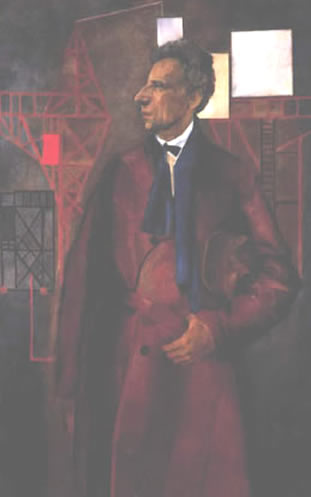TOPICS & ISSUES
Aesthetics and Morals: Science is about nature, Art is about human nature, us.
Mind - Soul - Spirit - Heart
5 min THR History, timetable, dates and styles. History of Theatre or history of Drama?
How to write theatre papers, shows reviews
List (Analysis) -- list of professions.Opinion v. Analysis (arguments)
My favorites (scene, actor, image, line, costume, set, etc.): good v. bad. Use the program for names. State the date, when you saw the show. Must have endnotes and bibliography. Title is a must.
Terms Introduced
Dramatic CompositionExposition
Climax
Resolution
Aristotle
Theatro (Greek) - place for seeing
Stages: Proscenium, thrust, arena or round
Professions:
Playwright
Actors
Directors
Designers
Tech Crew
First 200 words paper is "My Favorite Movie", the second -- the play (Hamlet)
Summary
In Chapter 1, A says that all poetry is mimetic and the mimesis can differ by way of• Medium: the medium can be colour, form, voice, rhythm, language, harmony - ie painting, poetry (include but not limited to tragedy), music (without words) and rhythm (without music).
• Object: The objects of mimesis are (Ch 2) "men in action", or "men doing / acting": these men are either as they are in real life, worse or better.
• Manner or mode: The manners of mimesis include narration, or by presenting "all his characters as living and moving before us" ie acting or the direct speech used in Homer, which was presented by a rhapsode using direct speech, similar in this sense to the actor in tragedy.
Questions
Poetics (Dover Thrift Editions) Among the most influential books in Western civilization, the Poetics is really a treatise on fine art. It offers seminal ideas on the nature of drama, tragedy, poetry, music and more, including such concepts as catharsis, the tragic flaw, unities of time and place and other rules of drama. This inexpensive edition enables readers to enjoy the critical insights of one humanity’s greatest minds laying the foundations for thought about the arts. $1.50Notes
..."tragedy is an imitation ( mimesis ) not of men, but of an action ( praxis ) and of life, and life consists in action ( praxis ), and its end is a mode of action ( praxis ), not a quality"... praxis = doing, a transaction, business affair; the progress or result of a business; an action and what happens as a result of the action; set of doings/ transactions: actions connected to each other to form a coherent set of actions or pattern.
Playwright's Workbook:
Playmaking
Vector Theory
Theatre Books Master-Page *
Shakespeare:
Hamlet, Shrew, 12th Night (SHOWS directory)
Complete Shake:
12th Night
2007



 * GODOT.06: Doing Beckett => main stage Theatre UAF Spring 2006 *
* GODOT.06: Doing Beckett => main stage Theatre UAF Spring 2006 *

